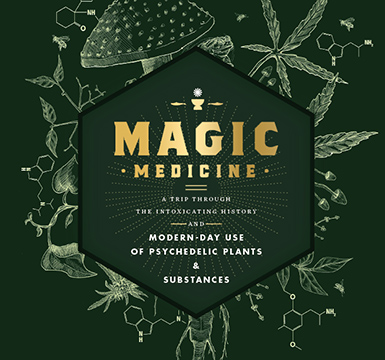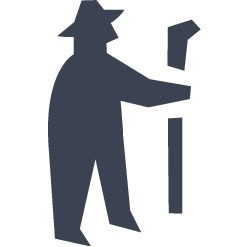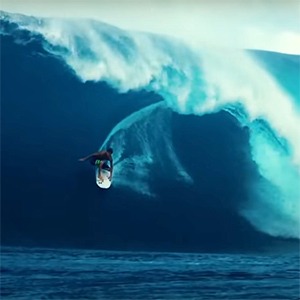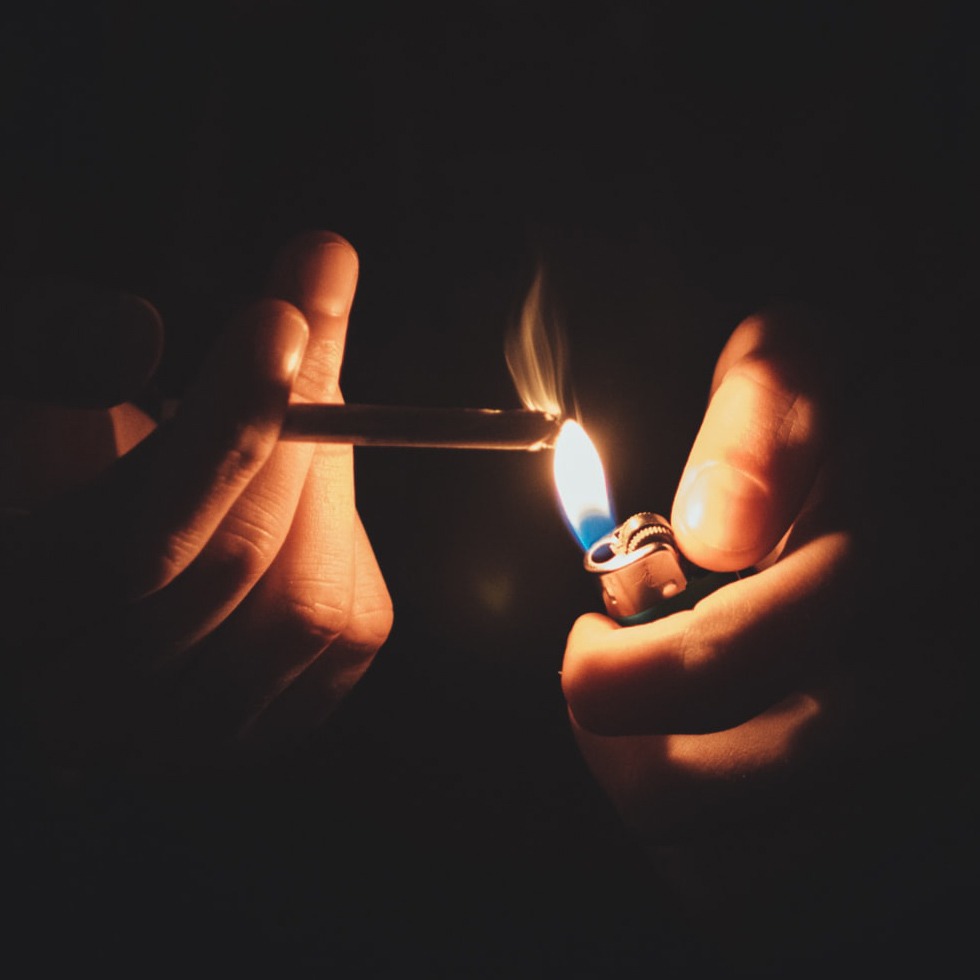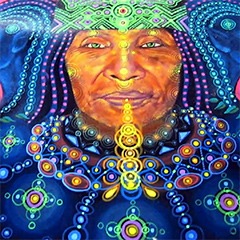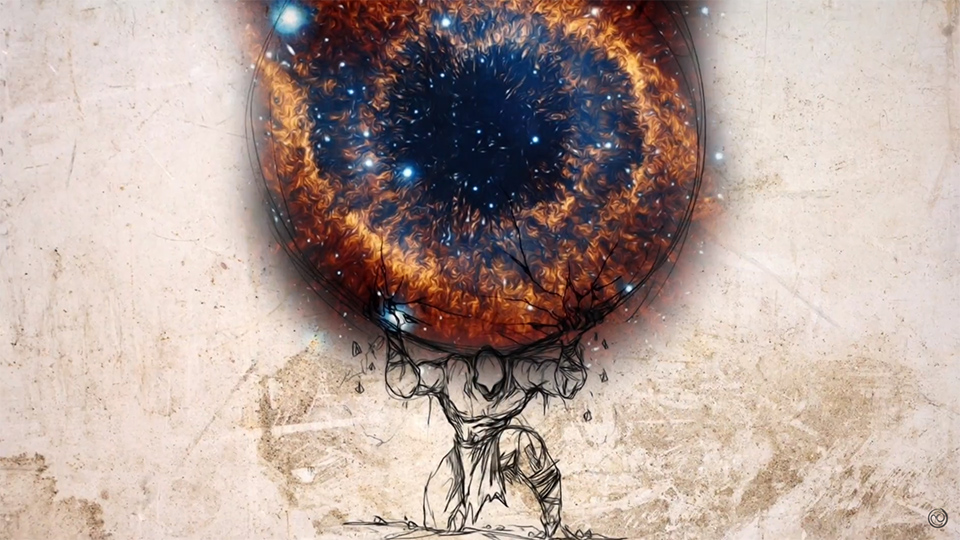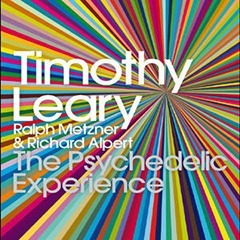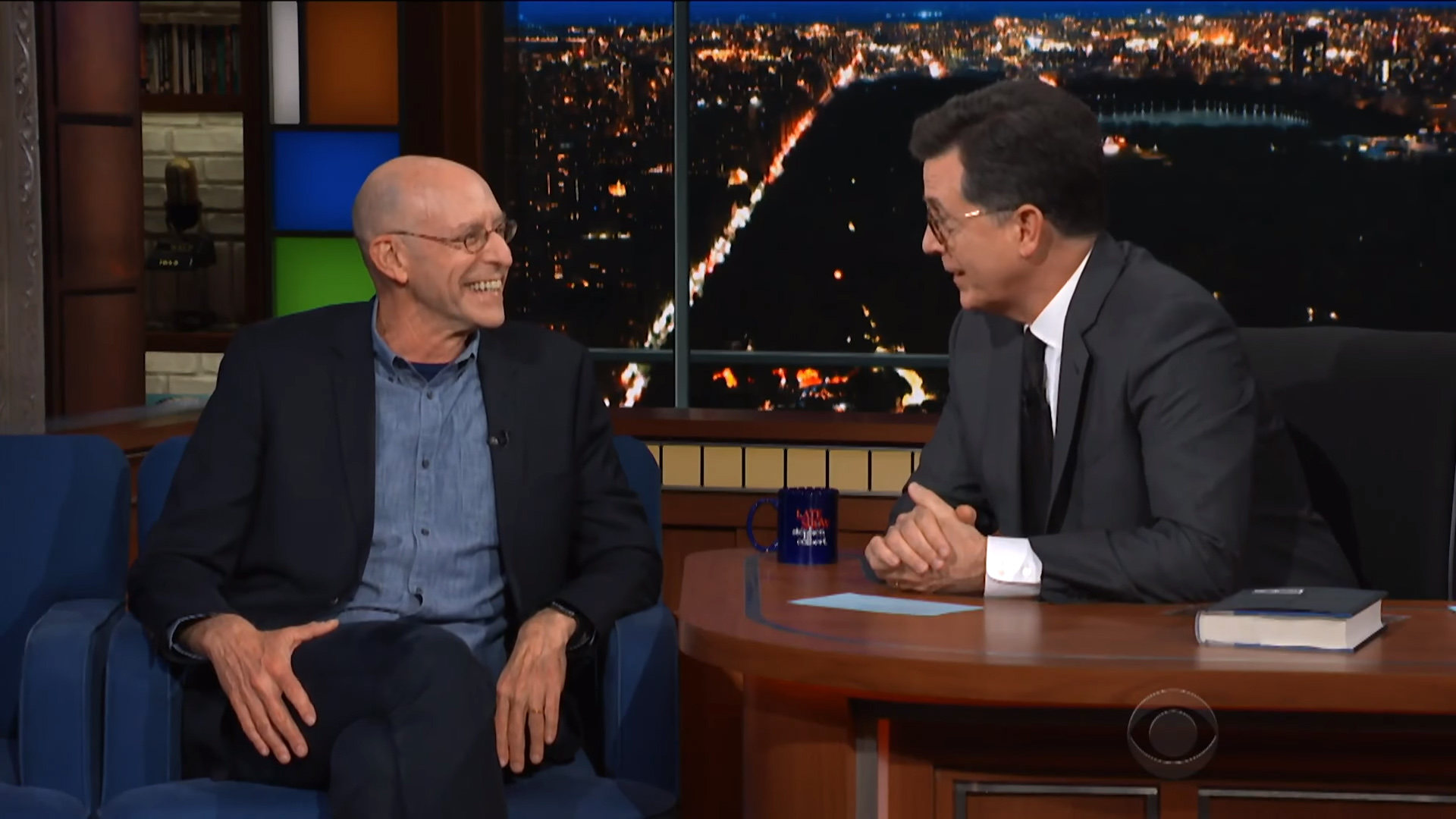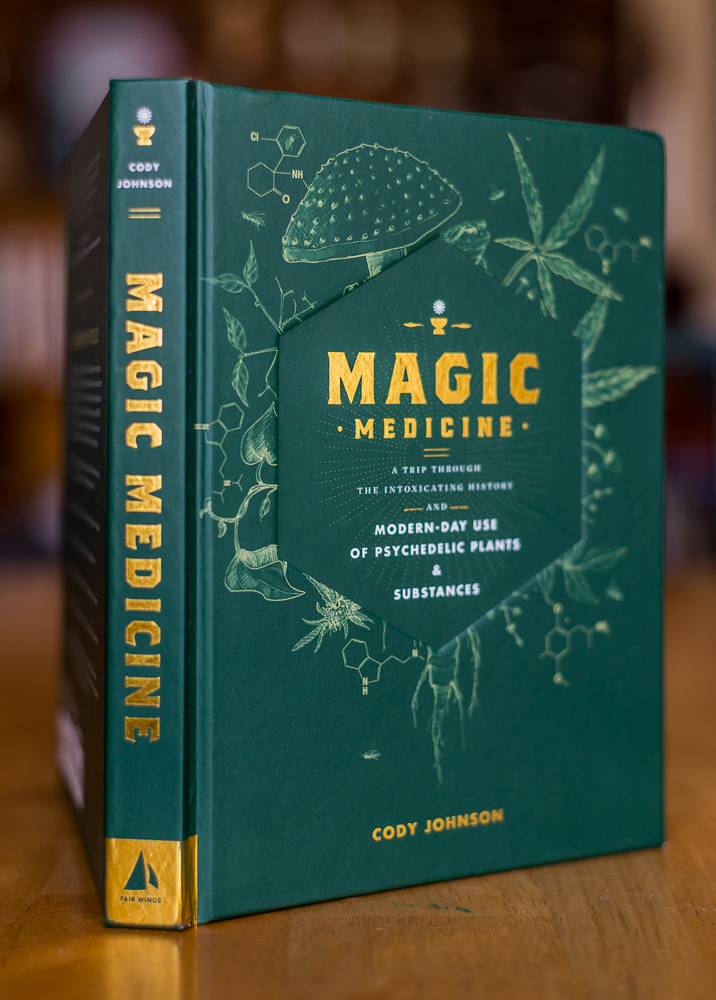This guest post by Martijn Schirp continues from Part 1 and Part 2, discussing the Interdisciplinary Conference on Psychedelic Research that he attended. It was originally published on higHExistence.com.
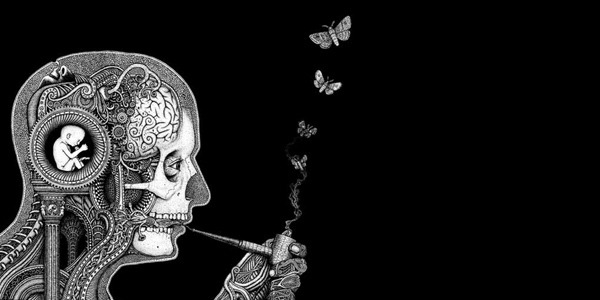
What are the larger implications of the mystical experience? One aspect of the mystical experience is what psychology calls “ego death.” If we anchor our worldview on the self and constantly think self-oriented thoughts, we are blinded to our interconnection with everything around us. This privatized perspective is utterly destructive to everything alien to it. Psychedelics can “kill” the ego responsible for this self-oriented perspective, opening us up to a greater, more boundless reality.
Some thinkers, beginning with Vernadsky and Teilhard de Chardin, have conceived of a “noösphere”–the thinking stratum, the effect of consciousness on the physical world. It’s comparable to the biosphere, a living stratum consisting of all ecosystems. The biosphere emerges from the geosphere, or the collection of all matter; the noosphere, in turn, emerges from the interactions of minds in the biosphere. And “just as the emergence of life fundamentally transformed the geosphere, the emergence of human cognition fundamentally transforms the biosphere.”
As isolated individuals, we tend to see other beings and ecosystems as separate from ourselves. But in the noosphere–the ecosystem of minds–no consciousness is truly isolated. Ego death, brought about by psychedelics or other means, reminds us that we are members of ecosystems, not separate from them. Man is nature. This rekindled knowledge strengthens the noosphere by acknowledging the interconnectedness all sentient beings. This is something mystics and yogis have been telling us for ages. Tat Tvam Asi! You are That! Through the psychedelic experience we can discover structures that are often inhabited by intelligences other than our own and have the distinct quality of Divinity.
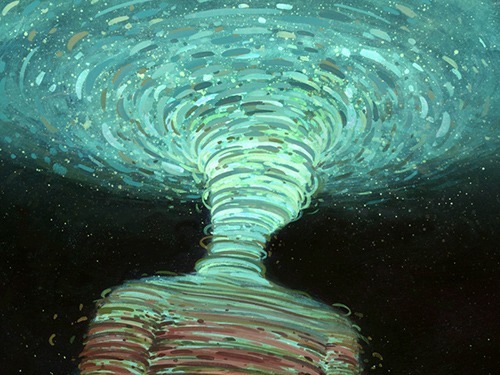
Ego death — the dissolution of all boundaries of Self, merging with the cosmos. (Art by Brendan Monroe)
What happens when large groups start to ingest psychedelics together in a spiritual way? Do they exhibit features that can lead to a massive ecological enlightenment? Are they able to be more conscious of the interconnection between themselves, others and the planet? Another fantastic talk at the Interdisciplinary Conference on Psychedelic Research was by Judith Sudhölter who investigated just that with remarkable results. She studied Dutch members of the Santo Daime Church, a syncretic church based on Folk Catholicism, Kardecist Spiritism, African animism and South American Shamanism. During the ritual, Santo Daime members ingest ayahuasca (Daime) while singing and dancing.
Her main question was “How do Dutch Santo Daime members give meaning to the psychedelic experience?” As experienced users surely know, these experiences are often intense, mentally challenging, and threaten the very identity of the user (which is at the same time part of the healing mechanism). The revelations ayahuasca brings about are often so extraordinary that they are challenging to integrate into our daily lives. If we encounter ancestors, other dimensions, benevolent spirits, or angels during an ayahuasca ceremony, what do we do with them once we have both feet back on the ground? One important aspect of integrating experiences is found in the human endeavor of narrative, the stories we tell ourselves and others about what has happened.
Sudhölter’s study found that there was a great variety between respondents’ stories. Not only did they all have different theories and interpretations and used different terminologies, they were logically inconsistent and multi-layered. Sometimes individual subjects would even contradict their own stories!
This was not the only paradox. The participants of Santo Daime had deeply ingrained beliefs because of the use of ayahuasca, but at the same time their thought systems broke open and thus became more relative and less literal. Sudhölter found there was an increased explicit awareness of the relativity of stories themselves. Psychedelics, by momentarily suspending thoughts, reminds us that the map is not the territory, that language shapes reality but should not be mistaken for reality itself. And is this not the first step towards stepping out of our normal self-focused world and into one inhabited by others around us? Don’t we need to wake up from our dualistic vision of the world and start facing the world directly?
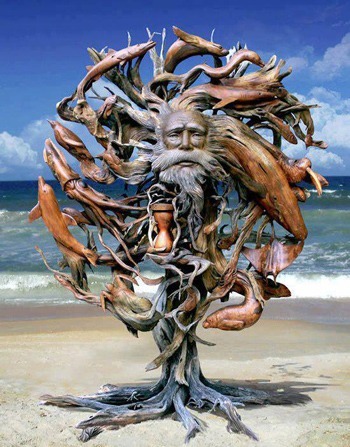
Humankind — one member of a vast ecosystem of creatures and minds (Art: Ocean’s Eleventh Hour, by Paul Baliker)
I, for instance, often feel complete and utter powerlessness when mass entertainment consumes the attention of our whole species, distracting us from the destruction we all contribute to. I know that listening to nature, the intricate ecosystems on which we fundamentally depend, is the only medicine left to cure our incestuous self-glorification Can we turn around the gaze of our attention and enter an “age of reunion” before the ecological disaster reaches our living rooms?
I think we can, and psychedelics are the chemical messages from Gaia to remind us she is here. Let’s take the next step in our evolution, shall we?
Check out the Psychedelic Salon podcast and the book Darwin’s Pharmacy by Richard Doyle. Both sources have brought me many new ideas, without which this article would have never seen the light of day.
Liked this post? Subscribe to my RSS feed to get much more!

